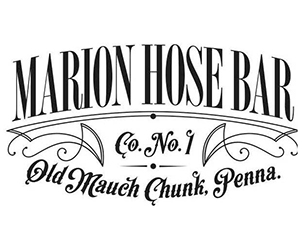Some questions may be running through your mind as the coronavirus pandemic wears on.
Is that apple at the supermarket contaminated? Did someone with COVID-19 sneeze on the peaches?
While there’s no evidence or documented cases of COVID-19 that suggest the virus can be transmitted through food, experts told USA TODAY that there still is a chance to get sick if you pick up an item someone infected has sneezed or coughed on.
And while most people make good decisions, all it takes is one bad one to increase the risk. In Pennsylvania, a woman went through a grocery store coughing on food in what the store’s co-owner called a “twisted prank.”
Felicia Goulet-Miller, an instructor of microbiology at Florida Gulf Coast University, said food items, including fresh produce, can spread the disease.
“If the produce is contaminated by a sick person and you touch it and then touch your face, you can become infected,” Goulet-Miller said, noting it’s another reason not to touch your faces in public and to wash hands after touching things touched by others.
Don Schaffner, a food science professor at Rutgers University in New Jersey, said information and guidance is constantly changing but that the virus doesn’t like being outside the body. After a couple of days, the virus would be undetectable on a hypothetical apple that someone with COVID sneezed on, he said.
“What we believe is true is that you won’t get coronavirus from that apple, but we don’t know that definitively,” Schaffner said.
Don’t use chemicals on produce
Don’t bleach the veggies or use chlorine on the fruit. No disinfecting wipes or isopropyl alcohol, either.
“These are not safe for human consumption and could make you sick,” Goulet-Miller said.
And if you digest enough soap, it could be toxic, Schaffner warns.
“Those soaps and detergents are designed for washing hands or for washing dishes and they’re not designed for washing food,” he said. “If you don’t get it all off it might cause an upset stomach.”
As for chlorine, using it incorrectly also comes with dangers. “Using chlorine in a way that could be harmful is worse than the risk of regular foodborne pathogens,” said Francisco Diez-Gonzalez, director of the Center for Food Safety at the University of Georgia.
How to protect yourself
The main recommendation experts shared with USA TODAY along with guidance from the Centers for Disease Control and Prevention is to rinse produce under running water before eating it.
In a statement to USA TODAY, the CDC also stressed the importance of thoroughly washing hands with soap and water “for at least 20 seconds” before preparing or eating food.
“The recommendation still continues to make sure to soak (produce) in water or put it under running water to wash out any potential contamination,” Diez-Gonzalez said, adding that cooking vegetables would also “take care of the virus.”
Washing produce removes about 90% of any contamination but not everyone is taking the time to rinse before taking a bite. “I assume that many people before this outbreak were not washing their produce,” Diez-Gonzalez said, who estimates that before the pandemic, less than 20% were washing their hands before eating.
Goulet-Miller also recommends washing fruit like bananas.
“Even if the fruit has a peel, you should wash it first because touching it could contaminate your hands and you could then infect yourself as you eat that delicious banana.”
No food sharing
But cleaning your produce isn’t the only thing to keep in mind. Felicia Wu, professor of food science and human nutrition at Michigan State University, said sharing any type of food or drink should be off-limits.
“It is crucial, even within families, to make sure not to share food that someone else directly bit into or drank,” Wu said, noting saliva of someone infected may contain the virus.
“That is why someone infected with this virus and coughing, sneezing or spitting close to you would increase your risk of becoming infected,” Wu said. “For that same reason, although it sounds a bit disgusting to discuss, people transmit their saliva onto the food they eat and the beverages they drink.”
Schaffner also suggests that if someone sick is in your home they “should be eating by themselves.”



























Add Comment